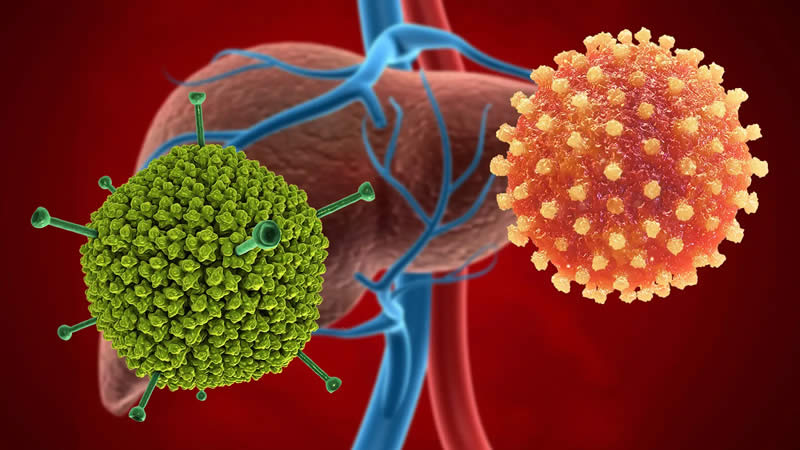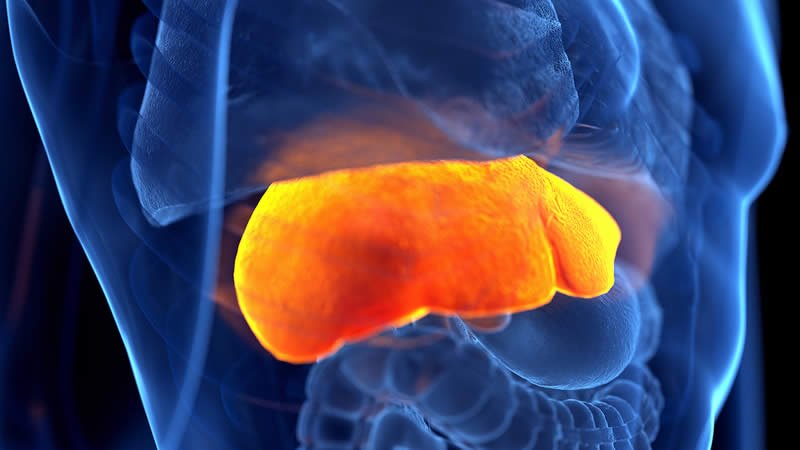Signs and symptoms of hepatitis include nausea, vomiting, abdominal pain, turning yellow and dark urine
The Centers for Disease Control and Prevention (CDC) issued a Health Alert Network Health Advisory addressing a suspected link between a strange cluster of children with hepatitis, which is liver inflammation, and a virus known as adenovirus.
“This health advisory serves to notify U.S. clinicians who may encounter pediatric patients with hepatitis of unknown etiology to consider adenovirus testing and to elicit reporting of such cases to state public health authorities and to CDC,” the CDC said. “Nucleic acid amplification testing (NAAT, e.g. PCR) is preferred for adenovirus detection and may be performed on respiratory specimens, stool or rectal swabs or blood.”
According to Fox News, in November 2021, the CDC received notification from a big children’s hospital in Alabama of five previously healthy pediatric patients who had a substantial liver impairment, including three with acute liver failure who were also positive for adenovirus, but none of them had COVID-19.
According to the CDC, adenovirus most usually causes respiratory illness, but it can also cause conjunctivitis (pink eye), acute gastroenteritis, cystitis, and rarely neurologic disease. There is no therapy for adenovirus other than symptomatic care.

Close personal contact, respiratory droplets, and fomites transmit the virus, which has over 50 different types that can infect humans.
However, the virus type identified in the five pediatric patients, adenovirus type 41, is known to cause acute gastroenteritis, which can include diarrhea, vomiting, and fever, as well as respiratory symptoms.
“While there have been case reports of hepatitis in immunocompromised children with adenovirus type 41 infection, adenovirus type 41 is not known to be a cause of hepatitis in otherwise healthy children,” per the health advisory.
From October 2021 to February 2022, four more pediatric patients with hepatitis and adenovirus infection were detected at the Alabama Children’s Hospital, for a total of nine hospitalized patients, two of whom required a liver transplant. However, no patients died.
According to the U.K. Health Security Agency press release, between January 2022 and April 12, 2022, the United Kingdom Health Security Agency (UKHSA), Public Health Scotland, Public Health Wales, and the Public Health Agency reported a total of 108 cases of “sudden onset hepatitis” in children under the age of 10 who tested negative for common viruses known to cause hepatitis, including hepatitis viruses A, B, C, D, and E.
Authorities in the United Kingdom revealed that 77% of their cases tested positive for adenovirus
“The United Kingdom has recently observed an increase in adenovirus activity, which is co-circulating with SARS-CoV-2, though the role of these viruses in the pathogenesis (the mechanism by which disease develops) is not yet clear,” the World Health Organization noted.
According to the press release, 79 of the verified cases are in England, 14 in Scotland, and the rest in Wales and Northern Ireland, with 8 children having a liver transplant. However, no one has been vaccinated against COVID-19 in any of the confirmed cases.
“We are working with the NHS [National Health Service] and public health colleagues in Scotland, Wales, and Northern Ireland to swiftly investigate a wide range of possible factors which may be causing children to be admitted to hospital with liver inflammation known as hepatitis,” said Dr. Meera Chand, director of clinical and emerging infections at UKHSA.
“Information gathered through our investigations increasingly suggests that this is linked to adenovirus infection. However, we are thoroughly investigating other potential causes.”
According to a Stat report, Spain and Denmark have also reported cases of unusual hepatitis in children, while France is investigating two suspected cases in Lyon and Israel is investigating a dozen children with unexplained hepatitis over the course of four months, two of whom require liver transplants.
Viruses, alcohol, toxins, drugs, and other medical factors can all cause hepatitis. According to the CDC, the most common causes of viral hepatitis in the United States are hepatitis A, hepatitis B, and hepatitis C viruses.
Nausea, vomiting, abdominal pain, turning yellow, and dark urine are all signs and symptoms of hepatitis, according to the CDC, with treatment focusing on the underlying cause.



